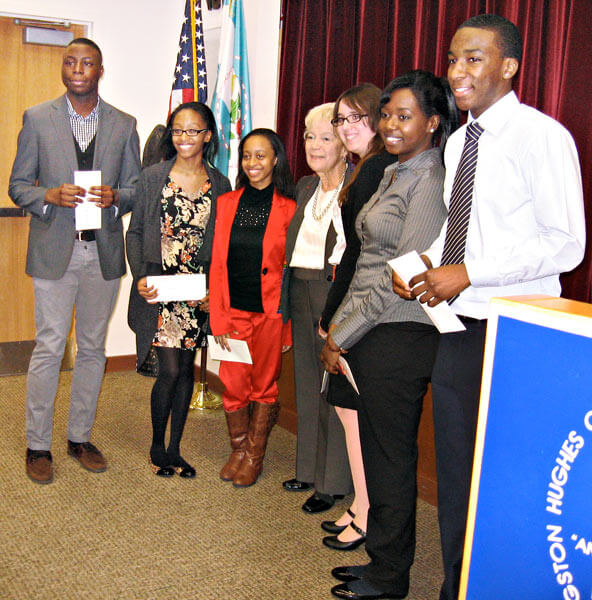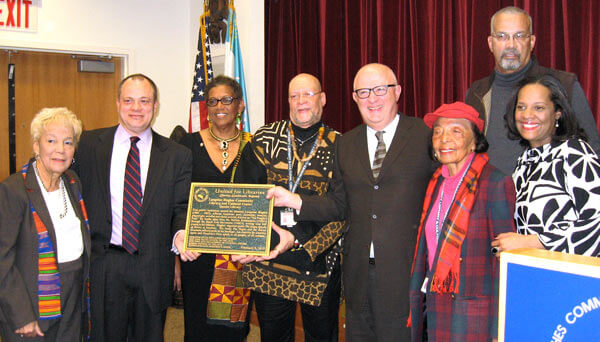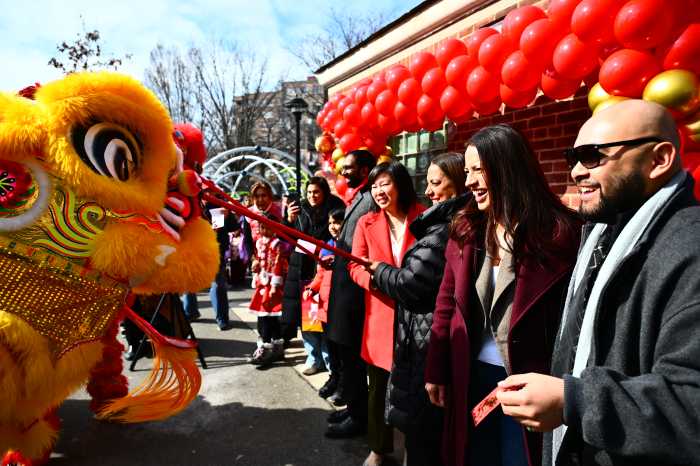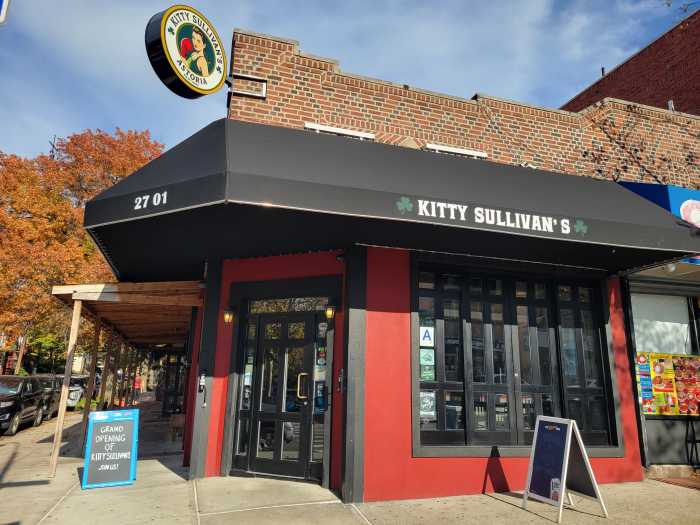By Rebecca Henely
The national Literary Landmarks Association has designated 10 New York locations for landmark status throughout its 27 years, but Saturday marked the first time in the state the association landmarked a library.
“Langston Hughes is now nationally recognized,” said Andrew Jackson, executive director of the Langston Hughes Community Library & Cultural Center in Corona.
The Langston Hughes Library, at 100-02 Northern Blvd., received landmark status for being the first public institution to be named after Hughes, the premier poet of the Harlem Renaissance. It celebrated its new designation at the annual ceremony to give out the African American Heritage Month Awards.
“I feel really proud and honored to be here today,” said Tom Galante, chief executive officer of the Queens Library system.
The Literary Landmarks Association is an arm of United for Libraries, an advocacy group for libraries across the nation. In the past, the association has recognized New York literary sites such as Washington Irving’s home and the Algonquin Round Table, where many witty writers and actors of the early 20th century met for luncheon and jokes.
“It makes people more aware of the literary heritage that’s in their own backyard,” said Rocco Staino, who spoke at the ceremony on behalf of United for Libraries.
Staino said the community advocated for the library to receive its landmark status. The decision to name the library after Hughes in the wake of the poet’s death helped continue the poet’s legacy.
In addition, the library maintains the largest circulating collection of black heritage books and items in the state of New York. African-inspired sculptures and paintings of black writers, not only Hughes but also James Baldwin and Zora Neale Hurston, decorate the walls, Staino said.
“Just walk around the library and black heritage pops out at you,” Staino said.
State Assemblyman Jeffrion Aubry (D-Corona) praised the decision to landmark the library, which he said he has watched and help financially support through his decades in office.
“I think it’s more than appropriate. This library has blazed new trails,” Aubry said. “It’s an institution that is a model nationwide.”
Aubry, who is black, said Hughes’ writing exemplified the emotions of those in the black community from the 1940s to the ’70s, translating the black experience to the entire world in a way that was never done in literature before.
“While we might appreciate Emily Brontë, we felt Langston Hughes,” Aubry said.
Reach reporter Rebecca Henely by e-mail at rhenely@cnglocal.com or by phone at 718-260-4564.





































